2005 by Hannah E. Britton
All rights reserved
Manufactured in the United States of America
c 5 4 3 2 1

This book is printed on acid-free paper.
Library of Congress Cataloging-in-Publication Data
Britton, Hannah Evelyn.
Women in the South African Parliament : from resistance to governance / Hannah Evelyn Britton.
p. cm.
Includes bibliographical references and index.
ISBN 0-252-03013-3 (cloth : alk. paper)
1. Women in politicsSouth Africa. 2. Women legislatorsSouth Africa. 3. South AfricaPolitics and government1994 4. South Africa. Parliament (1994 ) I. Title.
HQ 1236.5.S6B75 | 2005 |
328.68'0082dc22 | 2004030074 |
Portions of chapter 2 have previously appeared in Coalition Building, Election Rules, and Party Politics: South African Womens Path to Parliament, Africa Today 49, no. 4; used by permission.
Portions of chapter 4 have previously appeared in Participate or Withdraw? Women in South Africa, International Politics 38, no. 2 (June 2001); used by permission of Palgrave Macmillan.
Portions of chapter 5 have previously appeared in Incomplete Revolution: South African Womens Struggle for Parliamentary Transformation, International Feminist Journal of Politics 4, no. 1 (2002); used by permission of the journal (www.tandf.co.uk).
This work is dedicated to all the women of South Africa and most especially to the South African women in my life who have taught me lessons of grace, courage, and laughter.
Portia, Hermoine, Rose, Peggy, Nomzi, Karin, and Mergedis, I wish this work to be a tribute to your strength and your joy.
Preface
My relationship with South Africa began, oddly enough, in a high-school English class. The term apartheid was unknown to me until my senior year in the small, rural Appalachian town of Greeneville, Tennessee. As I sat on the kitchen counter at home one evening, reading a list of topics for our senior theses, my mother noticed one topic in particular: Alan Patons Cry, the Beloved Country as Political Propaganda. She said, That is the best book I have ever read. Believing she had read every book ever written, I took this to be a strong recommendation.
Patons narrative captured me instantly, and over the next several months I sought to learn all I could about apartheid, sanctions, and the international movement against South Africas racist regime. Entering Wake Forest University in North Carolina the following fall, however, I faced culture shock. Wake Forest was an amazing place for cultivating the mind and pursuing a deep liberal-arts education, but I felt socially isolated by the privileged economic backgrounds of most students there. Fortunately, progressive organizations, such as Students Against Apartheid and a chapter of the National Association for the Advancement of Colored People, were emerging on campus at that time. I began participating in these new groups, and we worked hard that academic year to protest the universitys investment policies. Activism filled all my time outside classes and part-time jobs. By my sophomore year we were building shanties and picketing the trustee meetings.
Collegiate antiapartheid activism led to my first two trips to South Africa: the first in 1990, on behalf of a student organization and the universitys board of trustees to investigate divestment, and the second in 1992, as a research assistant for the director of womens studies at Wake Forest, Mary DeShazer. Marys book A Poetics of Resistance: Women Writing in El Salvador, South Africa, and the United States was a groundbreaking comparative analysis of resistance poetry. My work with Mary and her generous offer to allow me to observe her interviews with South African women poets and politicians helped me learn about the essential role women played in the struggle against apartheid, which was distinct from the role men played. These women were discussing a model of resistance politics that incorporated both the public and the private spheres; more broadly, they were redefining feminism and its relationship to the South African liberation struggle. By 1992 these activists were embarking on a new organization, the Womens National Coalition (WNC), that was to unite women from all political and ethnic backgrounds. The initial success of the WNC indicated that South African women were starting a new phase that could lead to the creation of a national womens movement. The context of womens politics in the transition to democracy was ripe for analysis.
Just as, according to Fonow and Cook (1991), feminist methodology is oriented toward action, my goals in researching women in South Africa cannot be separated from my history of antiapartheid activism. An activist by nature and a reluctant academician by necessity, I slowly began to recognize that my academic research could have a much wider impact on the struggles for national and womens liberation than my previously localized attempts to challenge corporate investment strategies could ever have achieved. Consequently, I began focusing my graduate work on gaining an understanding of womens roles in South Africas transition to democracy, in the hopes of delineating and uncovering models and strategies that could be utilized in other African states. This book is an outgrowth of that process.
The major fieldwork for this project took place in 199697 and is supplemented by four other research trips: the previously mentioned two I made as an undergraduate, another in May 1998, and eleven weeks of fieldwork from May to July 2003. The Institute for Democracy in South Africa (IDASA) graciously hosted my research in 199697 and again in 2003. IDASA is one of the most prominent independent public-interest organizations in South Africa. It aims to promote a democratic and tolerant society, and its programs to foster sustainable development and democracy operate at the institutional, community, and individual levels. IDASA, which is politically nonaligned, has been a significant force in the eradication of apartheid and in the current transition to democracy. Its role in the nations transition to democracy has been and will continue to be pivotal in securing a peaceful, legitimate, and equitable society.
In addition to working with parliamentarians in Cape Town, I carried out month-long projects in each of the three major cities, Durban, Johannesburg, and Pretoria. These projects let me investigate additional spheres of government, namely, the provincial and the local. My work tracked several womens organizations in these areas. In 2003 my fieldwork research included six weeks in Cape Town interviewing women MPs and five weeks in Pretoria and Johannesburg meeting with members of the government administration, the Office on the Status of Women, and the Commission on Gender Equality.
I was partially connected to the women of South Africa in many ways. Specifically, we shared a gender identity, often a political orientation, and frequently class experiences. Despite these similarities, the differences between us were much more apparent. I am a white American academician, whereas most of these contacts were black African women with markedly different levels of educational achievement. Miess (1991) notion of partial identification captures my position in the research process: I could relate to the women in the research project through shared roles and identities, but I remained cognizant of the real differences and power imbalances that remained between us.


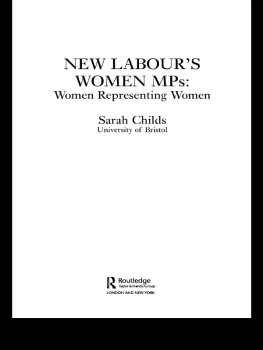
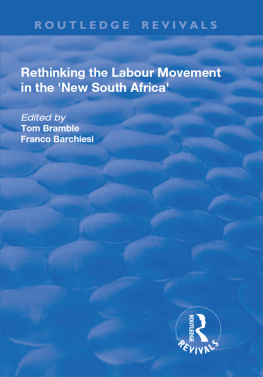
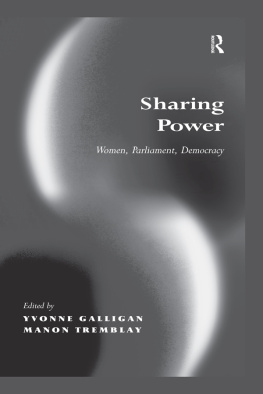
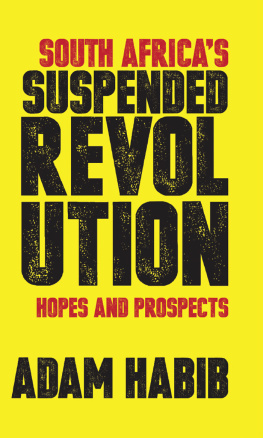

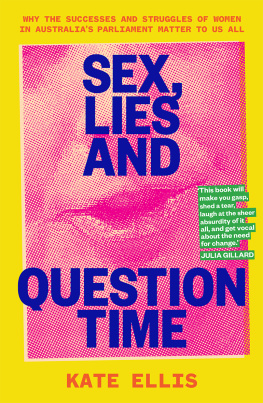
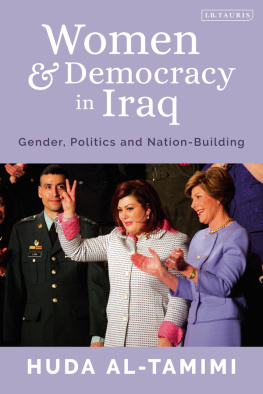
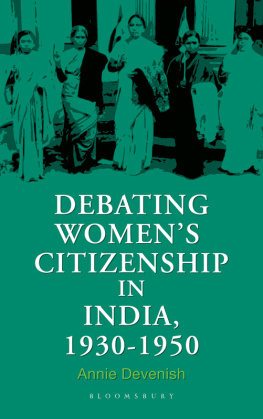

 This book is printed on acid-free paper.
This book is printed on acid-free paper.